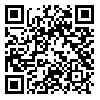Volume 17, Issue 1 (Spring 2025)
2025, 17(1): 119-127 |
Back to browse issues page
Ethics code: IR.MODARES.REC.1397.147
Clinical trials code: IRCT20190219042759N1
Download citation:
BibTeX | RIS | EndNote | Medlars | ProCite | Reference Manager | RefWorks
Send citation to:



BibTeX | RIS | EndNote | Medlars | ProCite | Reference Manager | RefWorks
Send citation to:
Arefy S, Amin Shokravi F, Montazery A. Psychosocial Problems of Adolescents with Parental Cancer: A Qualitative Study. North Khorasan University of Medical Sciences 2025; 17 (1) :119-127
URL: http://journal.nkums.ac.ir/article-1-3167-en.html
URL: http://journal.nkums.ac.ir/article-1-3167-en.html
1- PhD Student of Health Education and Health Promotion, Faculty of Medical Sciences, Tarbiat Modares University, Tehran, Iran
2- Professor of Health Education and Health Promotion, Faculty of Medical Sciences, Tarbiat Modares University, Tehran, Iran ,aminsh_f@modares.ac.ir
3- Professor of Community Health Research Department, Health Assessment Research Center, Jihad University Health Sciences Research Institute, Tehran, Iran
2- Professor of Health Education and Health Promotion, Faculty of Medical Sciences, Tarbiat Modares University, Tehran, Iran ,
3- Professor of Community Health Research Department, Health Assessment Research Center, Jihad University Health Sciences Research Institute, Tehran, Iran
Abstract: (1442 Views)
Introduction: Due to the widespread prevalence of cancer, the number of parents with cancer who have a dependent child is increasing. Cancer in parents creates challenges for teenagers in the family and exposes them to mental and physical problems caused by the diagnosis of cancer in parents. In order to prevent negative consequences in children, it is necessary to understand more regarding the impact of parental cancer on children and their psychosocial needs. The present research was conducted to explain the psychosocial problems of adolescents whose parents suffer from cancer.
Method: The current research was conducted using the qualitative content analysis approach. A total of 18 teenagers with cancer-afflicted parents were selected by targeted sampling method from the medical education centers of Tehran, and semi-structured interviews were conducted with them. At the same time as the data was collected, the findings were analyzed using the content analysis method and with the help of MAXQDA10 software.
Results: After analyzing the interviews, 12 subcategories and five main categories, including "Mental rumination," "caregiving pressure," "parental cancer-related problems," "volatile social interactions," and "obstacles and facilitators of adaptation to the disease," were extracted, which can depict teenagers' experiences of having a parent with cancer.
Conclusion: The results of this research indicated that teenagers face many challenges in the field of coping with their parents' cancer. The results of the current study can be applied to help formulate and implement educational intervention programs to reduce teenagers' mental conditions.
Method: The current research was conducted using the qualitative content analysis approach. A total of 18 teenagers with cancer-afflicted parents were selected by targeted sampling method from the medical education centers of Tehran, and semi-structured interviews were conducted with them. At the same time as the data was collected, the findings were analyzed using the content analysis method and with the help of MAXQDA10 software.
Results: After analyzing the interviews, 12 subcategories and five main categories, including "Mental rumination," "caregiving pressure," "parental cancer-related problems," "volatile social interactions," and "obstacles and facilitators of adaptation to the disease," were extracted, which can depict teenagers' experiences of having a parent with cancer.
Conclusion: The results of this research indicated that teenagers face many challenges in the field of coping with their parents' cancer. The results of the current study can be applied to help formulate and implement educational intervention programs to reduce teenagers' mental conditions.
Type of Study: Orginal Research |
Subject:
Basic Sciences
Received: 2024/10/15 | Accepted: 2024/12/1 | Published: 2025/03/12
Received: 2024/10/15 | Accepted: 2024/12/1 | Published: 2025/03/12
Send email to the article author
| Rights and permissions | |
 |
This work is licensed under a Creative Commons Attribution-NonCommercial 4.0 International License. |







